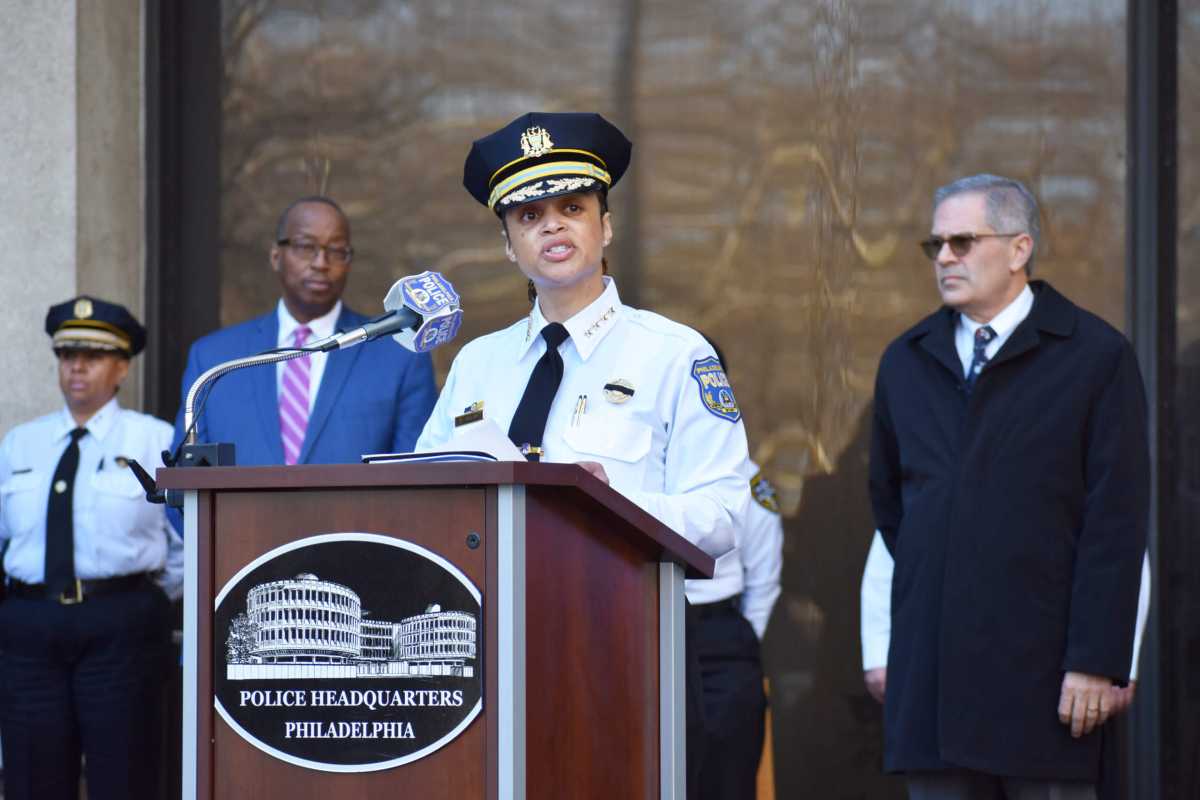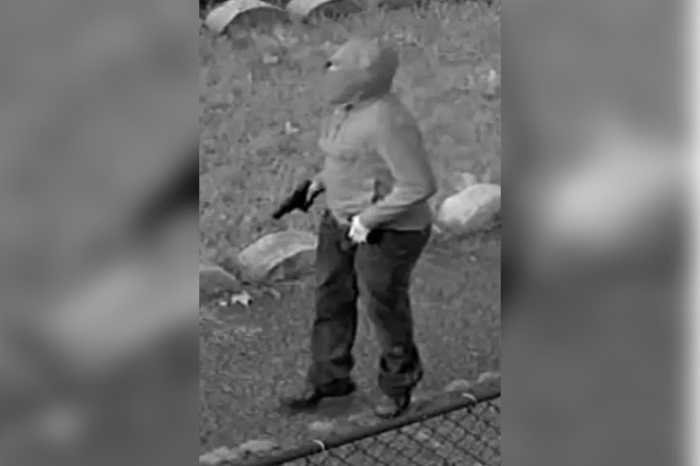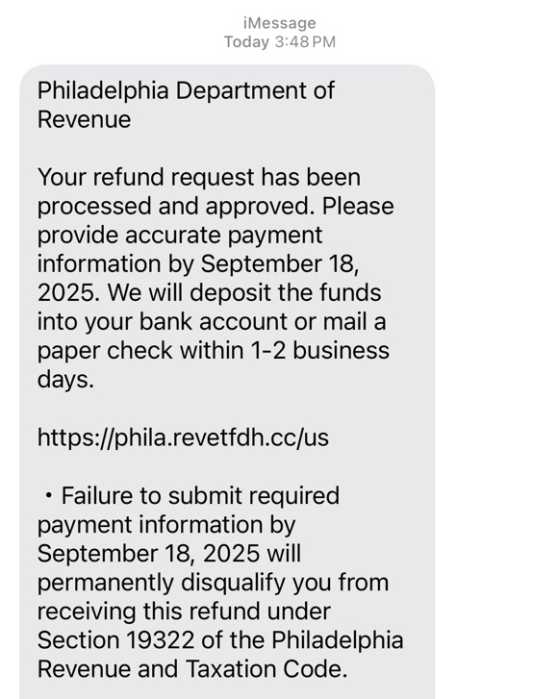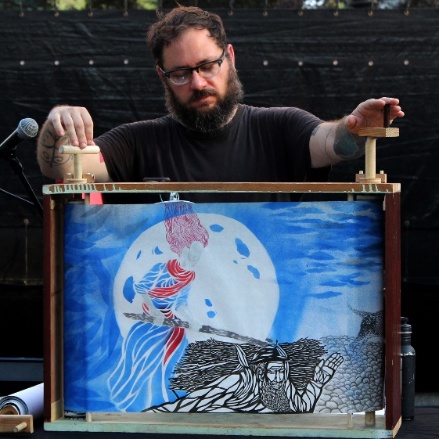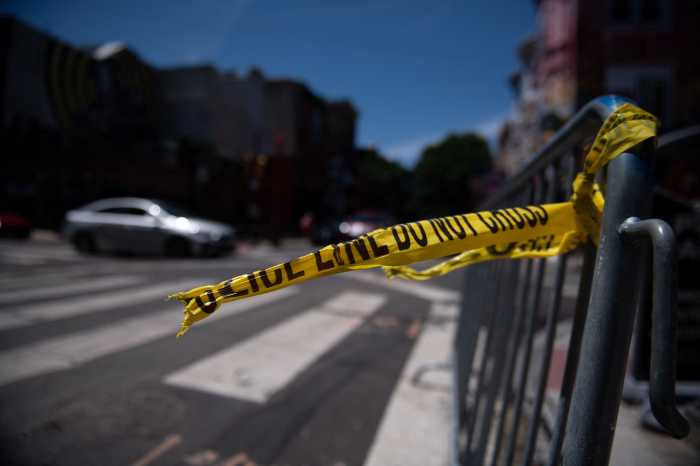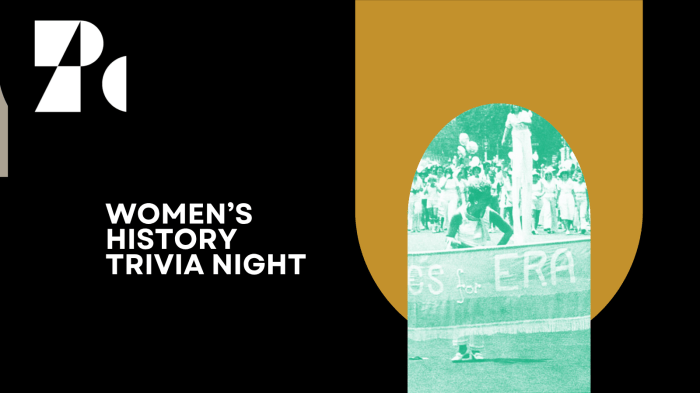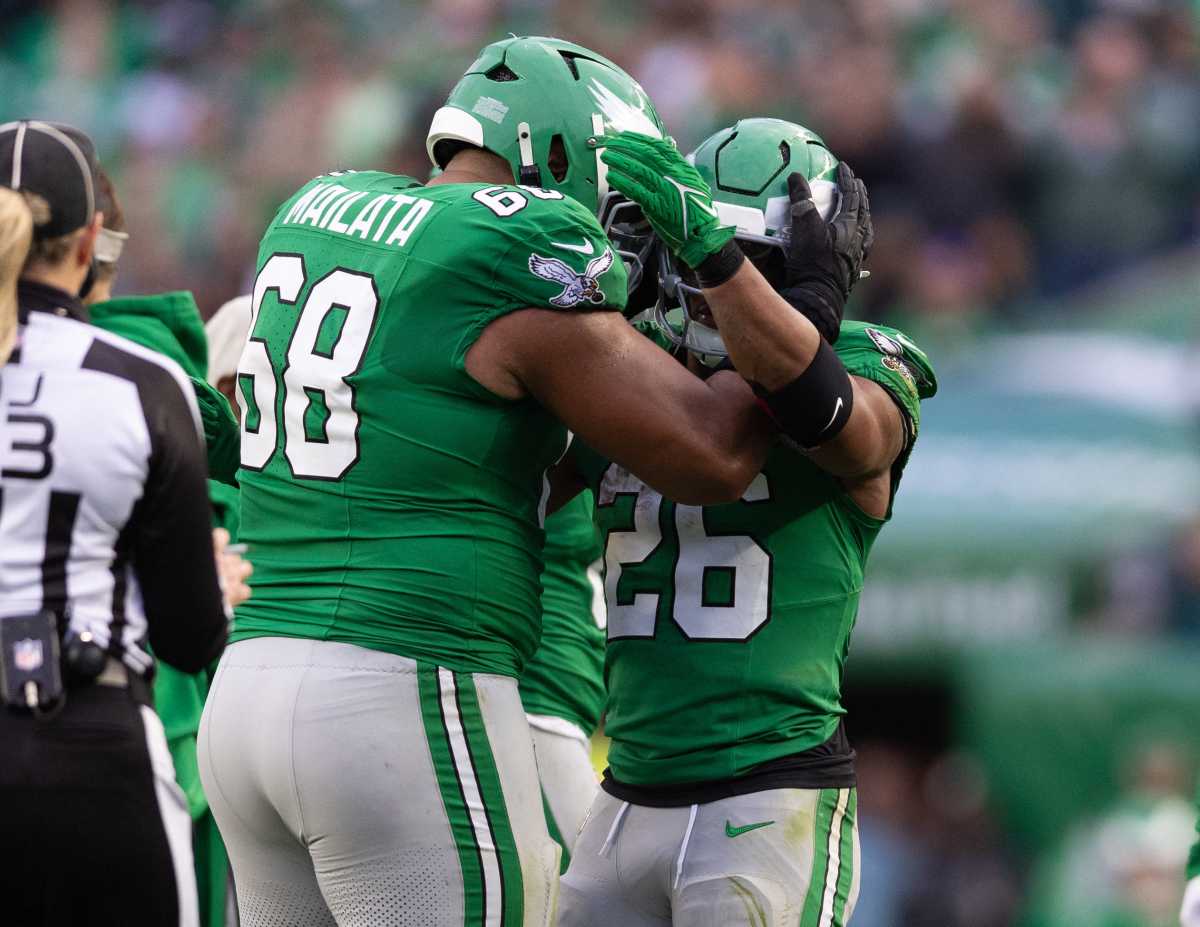Councilman Curtis Jones Jr. and District Attorney Larry Krasner came to the 200 block of N. Simpson Street while touring hotspots for crime in Jones’s district dating back to a couple of months ago
Jones said a woman pulled him aside and told him the best thing the city could do was burn down the block in West Philadelphia. He figured she was just being overly protective of her grandchildren.
Then, on Aug. 1, 7-year-old Zamar Jones, the woman’s grandson, was shot in the head, caught in the crossfire of a shootout between three men while playing on his front porch. The boy died two days later.
“The data was slapping us in the face about Simpson Street,” Jones, who is not related to Zamar, said. “We cannot let that grandmother’s loss go unheeded.”
Over the past five years, three homicides, 15 shootings and 23 armed robberies were recorded on Zamar’s block, according to data presented by Jones.
His death sparked Tuesday’s emergency hearing on gun violence. City Council brought in Krasner, Police Commissioner Danielle Outlaw and others to discuss Philadelphia’s escalating gun violence problem.
Homicides are up 31% compared to this time last year, and nearly 1,900 people, including more than 100 children, have been shot, an increase of 55%. Only Chicago has registered more murders in 2020.
Crime has been on the rise in many of the nation’s biggest cities. Some have attributed it to the novel coronavirus pandemic.
Outlaw, who took over the PPD in February, said Philadelphia’s uptick appears to be part of a long-term trend, though she said the virus has hampered some of the department’s anti-violence strategies.
Shootings have had fewer witnesses since coronavirus hit, as most people are staying home, Krasner said. It hasn’t helped that the court system has been at a near standstill, he added.
Krasner thinks bigger societal forces are also at play.
“There is no question that poverty and racism in this city, which are twin evils and are interconnected, have contributed greatly to violence in this city,” he said. “Simply put, poverty equals bullets.”
Councilmen Kenyatta Johnson and Isaiah Thomas said they have heard that there’s been a proliferation of hired shooters. Some will accept as little as $500 to kill a target, according to Johnson.
In June, Krasner’s office charged Steven Williams with four murders between September 2018 and May 2019, alleging he was a contract killer.
Such arrangements may be leading to an increase in mistaken identity, with the ‘wrong’ person being shot or killed, Thomas suggested.
In March, early in the pandemic, Mayor Jim Kenney questioned how Krasner’s office was treating firearms violations following a particularly violent stretch.
Kenney, during a press briefing Tuesday afternoon, said people with multiple gun-related arrests are more likely to shoot someone or be the victim of a shooting.
“We’re the most concerned with people who have prior gun arrests and are getting bail at all or getting bail that they can afford,” the mayor said.
Krasner, a progressive, is seen by some as ‘soft on crime,’ and several councilmembers at the virtual hearing hinted at that perception. They expressed interest in getting a breakdown showing the results of gun-related cases.
Prosecutors are consistently asking that bail be set at about $1 million for those charged with possession of illegal firearms, Krasner said, but bail commissioners haven’t been always granting their requests.
For about half of the cases, the suspect arrested is back on the street fairly quickly, he added.
Krasner said he wants to examine why that is happening and make sure investigators gather enough evidence when bringing charges.
“There’s nothing more important to me than having shooters off the streets, and I’m willing to do anything that I can do consistent within the law and the Constitution to make that happen,” he said.
Detectives have struggled to solve or “clear” cases, especially non-fatal shootings. In some high-crime neighborhoods, only about 20% of shootings end in an arrest, Krasner said.
For homicides, it’s closer to half, but Outlaw said her goal is to boost the clearance rate for homicides to 60% and 30% for all other shootings.
There’s a “broken trust” between residents who witness violence and investigators, Krasner said. Deputy Police Commissioner Ben Naish said one of the biggest issues is victims of non-fatal shootings not cooperating with police.
Increasingly, detectives are relying on surveillance video to nab shooters, Naish added.
Outlaw said recently-instituted weekly shooting reviews, a call where police review each incident with local, state and federal partners, have been helpful.
She is also hoping to expand Operation Pinpoint, a program within the department where officers focus on the most dangerous street corners and blocks.
Councilwoman Jamie Gauthier, who represents West Philadelphia, said she wants law enforcement leaders to make sure new initiatives make an impact.
“I’m tired,” she said. “I’m tired of the death. I’m tired of this being the reason that West Philly is in the news, and, frankly, I’m tired of hearing the same thoughts and prayers and ‘this needs to stop’ after every shooting.”



